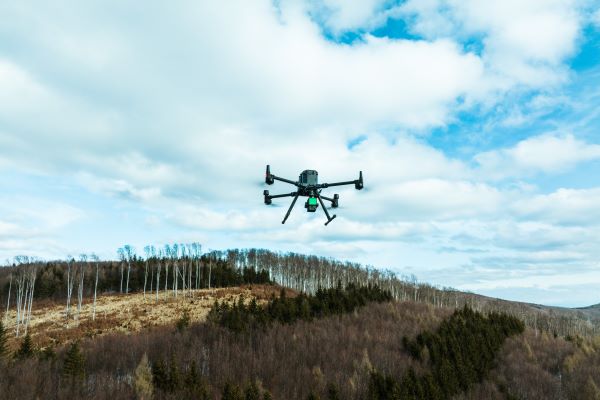October 22, 2024

In agriculture, change is a constant. With the many variables those in agriculture deal with each day — weather, wildlife, disease, markets, consumer preferences — technology may be one of the easier variables to adapt, adopt and hopefully add value to the operation for the long term.
In fact, farmers are often early adopters of new technologies. Cow identification systems and automated greenhouse climate controls are just a few technologies today’s agricultural producers are implementing to farm smarter, more efficiently and more cost-effectively.
These examples are just a small sampling of the capabilities available to today’s producers. So what benefits can new technology, including Artificial Intelligence (AI), bring to your operation? Let’s break it down.
Gain efficiencies and enhance productivity
AI’s wealth of data can inform producers about ideal planting times or generate customized regimens for crop or animal care. By leveraging this technology, you can maximize yields and improve animal health and productivity.
Reduce labor needs & costs
Labor is a constant challenge in agriculture. This has led many producers to consider mechanization.
In 2019, we interviewed a New Jersey greenhouse grower who had turned to automation to cut back on labor. He noted the mechanization allowed him to trim down on labor expenses and increase production and sales.
With the integration of AI, this mechanization is becoming smarter and more efficient at automating labor intensive tasks.
Informed decision making
AI collects and analyzes both real-time and historical data at an astronomical rate, allowing the end user to make faster, more informed decisions.
Crop Growers, Farm Credit East’s crop insurance provider, recently implemented Optimum, a data-driven solution that does just that to craft customized risk management plans for its insurance clients.
Enhance Sustainability
Technology provides opportunities to further sustainability all along the food and resource chain. Through soil, crop and climate monitoring, technology can optimize the use of water, fertilizers and climate control devices to reduce environmental impact.
A Western New York farmer we spoke with noted their investment in laser weeders is enabling them to cut back on labor expense and use less herbicides. As in this case, more precise targeted intervention can reduce inputs, increase efficiency, preserve biodiversity and reduce environmental impact.
What else is on the horizon?
AI can be a valuable tool that can help agricultural producers adapt to change more efficiently. With technology advancing at a rate, we’ve never seen before, what else is on the horizon?
We recently gleaned insights from leading researchers, technologists and thought leaders on some specific applications in the industries Farm Credit East serves, and how these advancements, like AI, will shape those industries into the future. Read more about advancing technology and AI in the 2024 Summer Financial Partner here.
Read the Summer Financial Partner




